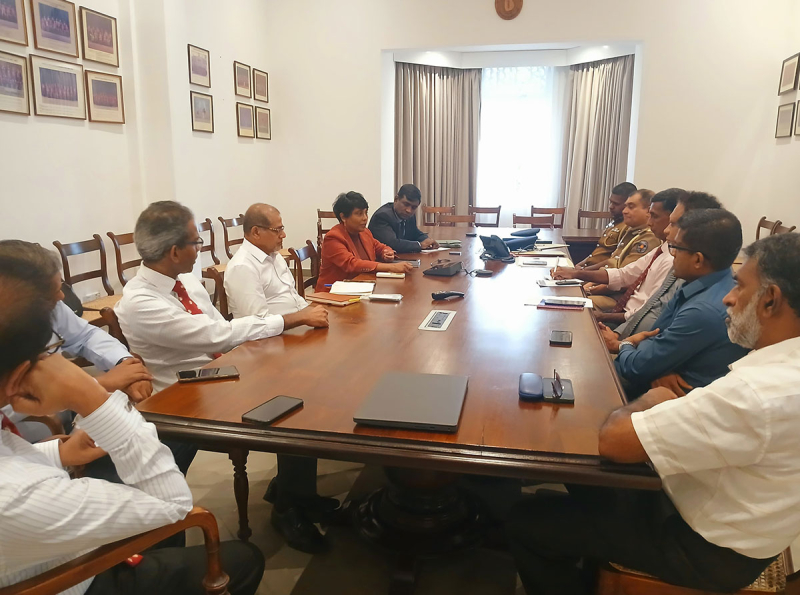A high-level meeting was held recently at the College of Surgeons in Colombo to initiate plans for a National Post-Crash Response System in Sri Lanka. This follows the recent tragic incident in Garedialle, where a mother died after being trapped under rubble for several hours while shielding her infant. The incident has deeply moved the nation and highlighted urgent deficiencies in Sri Lanka’s emergency and trauma care infrastructure.
In response, the Minister of Health and the Minister of Transport jointly acknowledged the gaps in pre-hospital and hospital-based emergency care and stressed the critical need for a well-coordinated, national response mechanism.
The meeting gathered a multidisciplinary panel of key stakeholders and experts. Attendees included Dr. Arosha Vidyabhushana, Chairperson of the National Transport Medical Institute; Major General Sampath Kotuwegoda, Director General of the Disaster Management Centre; and DIG Indika Hapugoda from the Traffic Division. Also present were Prof. Duminda Ariyarathne, President of the College of Surgeons; Prof. Ajith Malalasekera, President-elect of the College of Surgeons; Dr. Inuka, President of the College of Accident Medicine; and Prof. Clifford Perera, President of the College of Judicial Medical Officers. The Chief Medical Officer of SuwaSeriya Emergency Ambulance Service and senior officials from the Ministry of Transport, Disaster Management Centre, and other relevant organiations also took part in the discussion.
Participants conducted a comprehensive review of Sri Lanka’s current emergency response systems and identified key areas in need of immediate action.
One of the primary decisions reached was to establish District Disaster Response Teams, which will be coordinated by the Central Disaster Management Centre via the national emergency hotline (117). These teams will oversee the full chain of emergency care, from coordination with first responders and rescue operations to the safe and timely transfer of patients to suitable healthcare facilities.
Furthermore, the development of Field Triage Units and Immediate Trauma Response Squads was agreed upon. These will be based at district hospitals and are designed to deliver critical care immediately following an accident or disaster. The College of Accident Medicine, College of Surgeons, College of Anaesthesiologists, and the Ministry of Health will serve as the key stakeholders in designing and implementing these systems.
The initiative will be piloted in the Uva, Sabaragamuwa, and Central Provinces, regions where difficult terrain and logistical barriers pose particular challenges to emergency response efforts.
A follow-up meeting is scheduled in the coming weeks to present the draft proposals and finalise the implementation plan. Authorities aim to launch the first phase of the program by August 31, 2025.
This collaborative effort marks a vital step forward in strengthening Sri Lanka’s emergency medical response capacity and ensuring a faster, more coordinated response during the most critical moments when lives are at risk.



